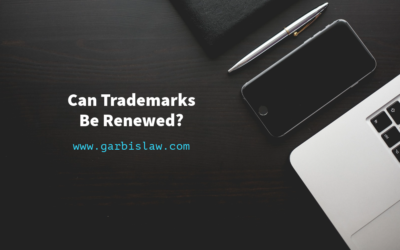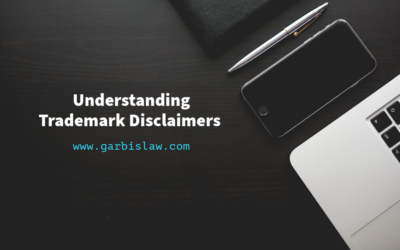Even if you aren’t a fan of band Led Zeppelin, I’m willing to bet that you have heard the famous song “Stairway to Heaven.” The opening riff of the song is arguably one of the most recognizable parts of a song that has withstood the test of time since its release in 1971.
The song has remained so popular, that in 2014 it was remastered and re-released. Shortly after that release, however, a copyright infringement lawsuit was filed claiming that Led Zeppelin copied the song. On April 8, 2016, U.S. District Judge R. Gary Klausner ruled that there is enough evidence to move forward to a jury trial.
The band, Spirit, claims that Led Zeppelin heard its song “Taurus” and copied it. Before getting into an analysis of what the court said when deciding to proceed, I’ve included links to the two songs so you can compare:
There’s no denying that parts of the song sound similar, but is that enough for a copyright infringement claim? Let’s break down some things that apply to this case:
“Proof of copyright infringement is often highly circumstantial, particularly in cases involving music. A copyright plaintiff must prove:
- ownership of the copyright; and
- infringement—that the defendant copied protected elements of the plaintiff’s work.”
Led Zeppelin, as the defendant, argues that Spirit does not meet either element.
WHO OWNS THE COPYRIGHT?
The first question is whether or not Spirit actually owns the copyright to the work. This lawsuit was brought on behalf of the deceased Randy Wolfe, who was the guitarist for Spirit. Led Zeppelin argues that neither Wolfe nor his trustee can sue because:
- The song is a work for hire owned by Hollenbeck Music,
- Wolfe did not comply with statutory formalities to secure his federal copyright interest, and
- Wolfe failed to timely respond to a discovery request, thereby conceding the work for hire issue.
Led Zeppelin says that the song Taurus was a work for hire because of an exclusive songwriter agreement signed by Wolfe and Hollenbeck Music in August 1967. That agreement listed Wolfe as a “writer for hire,” with full copyrights going to Hollenbeck.
The Plaintiffs argue that the song was created by Wolfe before this exclusive agreement and was even played during shows in early 1967. The Defendants are relying on the copyright registrations submitted by Hollenbeck for Taurus, which the court decides is not enough to throw this issue out. The Plaintiffs have brought forth enough evidence to create a triable issue of fact as to whether Wolfe actually composed Taurus before the exclusive songwriter agreement.
The next point defendants rely on to attack the copyright ownership claim is that Wolfe did not follow statutory formalities even if he did compose the work prior to the agreement. Without getting into too much detail, the court needs to look to the 1909 Copyright Act which governed at the time this song was created. Even though Wolfe didn’t follow all the formalities necessary, he still maintained some common law protection and this would be an issue that the jury would have to address at trial.
As for the third issue brought forth by the Defendants, without getting into much detail, the Court rejected this argument as a basis for summary judgment.
INFRINGEMENT OF THE COPYRIGHT
Next up, actual infringement needs to be shown. “Because direct evidence of copying is not available in most cases, plaintiff may establish copying by showing that defendant had access to plaintiff’s work and that the two works are ‘substantially similar’ in idea and in expression of the idea.” Smith v. Jackson, 84 F.3d 1213, 1218 (9th Cir. 1996). If a plaintiff can’t show “access,” he/she can still make a case if the songs were “strikingly similar.”
According to the Court, in order to show “striking similarity,” a plaintiff needs to show that the accused work couldn’t be the result of an “independent creation.” Here, the Court does not agree with the plaintiff that the songs are “strikingly similar.” There is no doubt that there are a number of similarities, but many songs use similar chords and the bar is set quite high for a showing of striking similarity. Instead, the plaintiffs would need to show that the defendants had (1) access to the Plaintiffs’ song and (2) they were “substantially similar.”
Spirit has shown enough circumstantial evidence to determine the issue of access at trial. The Defendants state they had never heard the song prior to coming up with it, but Spirit has brought forth evidence showing they performed at the same concert as well a member of Led Zeppelin was a fan of Spirit and had gone to many shows. Whether or not this is enough evidence will be up to the jury to decide.
Finally, we need to look at the “substantial similarity.” The Court agreed with the Defendants that the only copyrighted work is the musical composition, not the sounds recording, because Congress did not extend federal copyright protection to sound recordings until the Sound Recording Act of 1971. With that said, “once all of the unprotected performance elements are stripped away, the only remaining similarity is the repeated A-minor descending chromatic bass line structure that is found in the first two minutes of each song.” Again, there is enough there for this case to continue to trial for a jury to decide the outcome.
I’d love to hear what you think after listening to the two songs. Copyright infringement or not?





